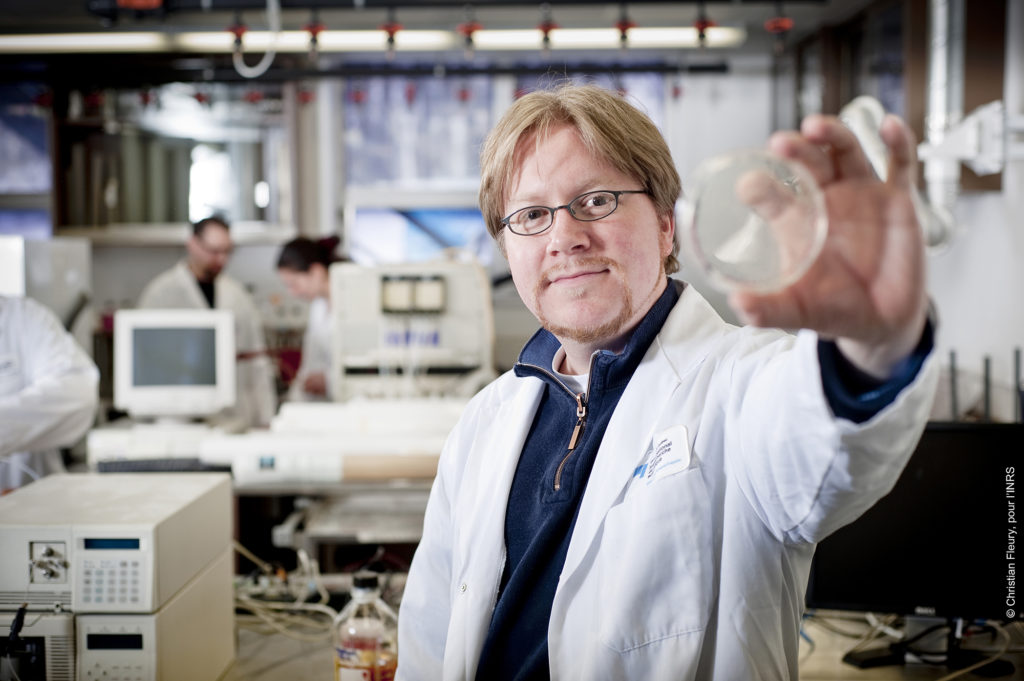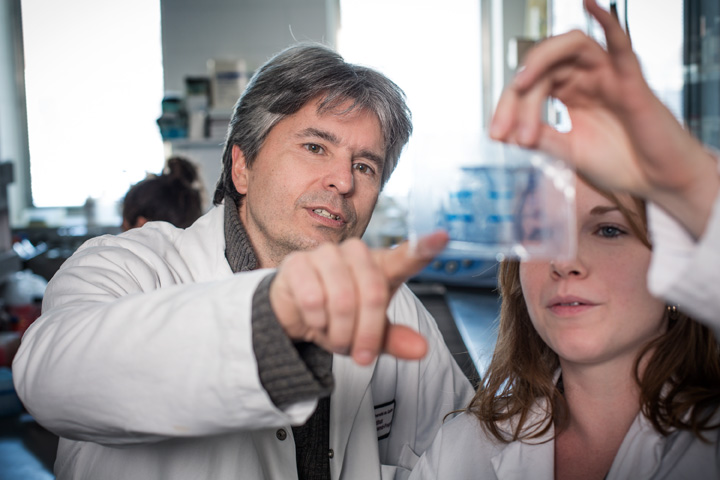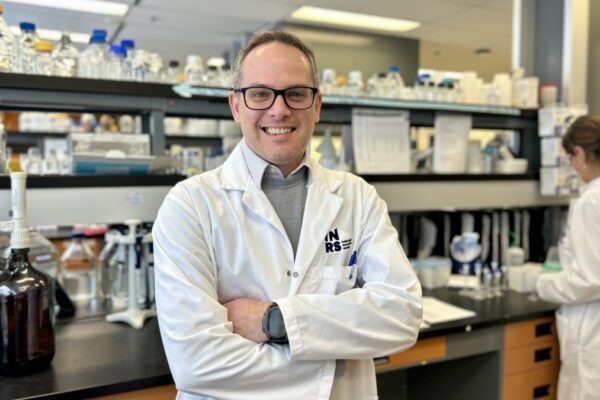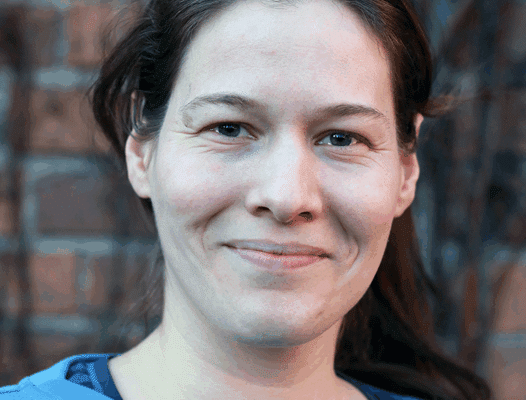- Research
-
YOU ARE
- Community member
- Future Student
- Student
- Professor
- Alumni
- Media
- Guidance counsellors
- INRS retiree
- Contact Us
- Newsroom
- Careers
- FR
-
Studies
We teach the next generation of researchers to develop scientific, social, and technological innovations.
-
Research
We find solutions through interdisciplinary research and industry or public and community partnerships.
-
INRS
We play an active role in Québec's economic, social, and cultural development.
Professors Nicolas Doucet and Yves St-Pierre of the Institut National de la Recherche Scientifique (INRS) are contributing their expertise in structural and cell biology to the race against COVID-19. In partnership with Glycovax Pharma, the two researchers will evaluate the feasibility of a vaccine strategy targeting carbohydrate molecules located on the surface of the coronavirus Spike protein.

These carbohydrates are the same as those found on other proteins in the body, so the immune system may not recognize S-proteins as coming from an invading pathogen. The process by which carbohydrates are attached to the surface of proteins, called glycosylation, can thus serve as a camouflage for the virus. However, certain types of carbohydrates, scarcely found on other proteins, could be a promising target for a vaccine.
“It was a fortunate coincidence that the carbohydrate molecules on which the biopharmaceutical company has been working on since 2017 are present on the Spike protein, says Professor Doucet. Glycovax Pharma is one step ahead because antibody development is already ongoing.”
Even if antibodies are currently being synthesized, two key issues need to be considered.That is where the teams of professors Nicolas Doucet and Yves St-Pierre come into play. Based on the three-dimensional structures of the S protein, Professor Doucet will determine whether the glycosylation sites are accessible to the partner antibodies. “It would be surprising that these sites are entirely inaccessible since host cell enzymes are capable of attaching carbohydrates at these positions, but we still need to confirm feasibility,” says the structural biology expert.
Researchers also need to ensure that these carbohydrate molecules are present on the Spike protein at all times, regardless of the type of infected cells in the host. “For instance, SARS-CoV-2 is known to attack the respiratory system, so if the lung cells do not attach the proper carbohydrates of interest to the coronavirus Spike protein after infection, this approach may not be effective,” he cautions.
“These are essential steps in validating a vaccine approach. Our results will allow Glycovax Pharma to prioritize certain antibodies or put forward other complementary approaches,” he says.
Professor Nicolas Doucet Professor Yves St-Pierre
The research project in partnership with Glycovax Pharma is funded by a Mitacs Accelerate grant that will support the work of postdoctoral fellow Yossef López de los Santos over the next year. “It’s exciting to be part of a talented team that is committed to fighting the COVID-19 pandemic, he says. I see our goal as quite ambitious, but at the same time it’s a great opportunity to use our expertise in structural biology to help combat a global problem.”
“This partnership with INRS experts in structural and cellular biology represents an important contribution in the pursuit of our work. Their contribution will help us take essential steps in the development of a new vaccine to counter COVID-19,” said Dany Valiquette, President of Glycovax.
You may also like
Share





